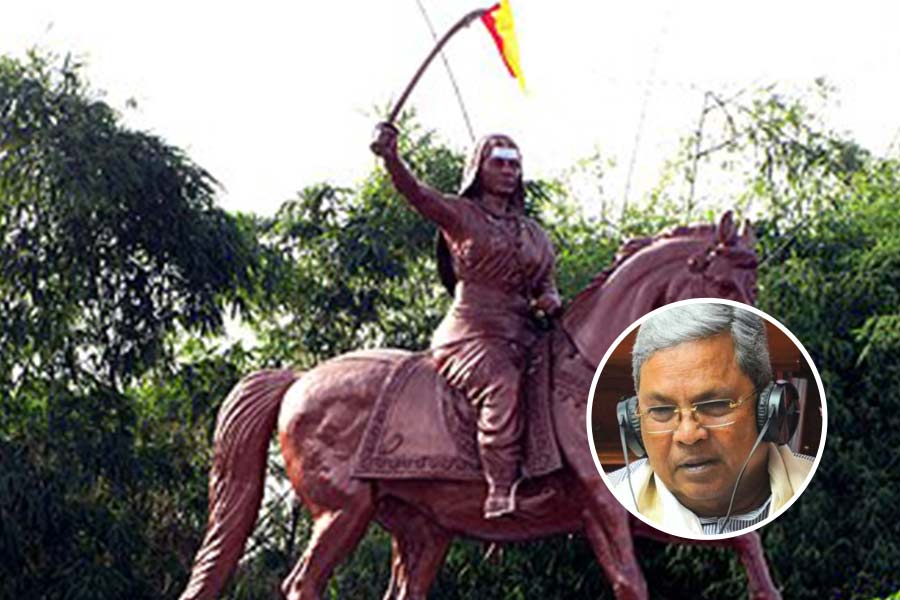In India’s freedom struggle, a name often overshadowed is Rani Chennamma of Kittur.
Nearly three decades before the Revolt of 1857, this queen led one of the earliest armed uprisings, the Kittur revolt of 1824, against British rule.
Her final resting place in Bailahongala taluk, Belagavi district, stands as a testament to that defiance. For many in Karnataka, Rani Chennamma is a symbol of defiance.
Karnataka chief minister Siddaramaiah is now pushing for the samadhi of Rani Chennamma to be declared a "monument of national importance" under the Ancient Monuments and Archaeological Sites and Remains Act, 1958.
In a letter to Narendra Modi on Saturday, he highlighted the need to preserve and protect this historic site.
“It stands as a beacon of courage and sacrifice, reflecting the determination of a woman who defied the might of the British East India Company in 1824,” Siddaramaiah wrote.
Today, her samadhi (resting place) remains in need of proper conservation.
“Recognising this site as a nationally important monument would be a step in preserving her legacy and honouring her contribution to the nation,” Siddaramaiah noted in his letter.
Siddaramaiah stressed that such recognition would facilitate the necessary measures to safeguard the samadhi’s integrity, protecting it from "neglect and degradation".
"It would also bring greater visibility to the site, attracting visitors from across the country and beyond, thereby promoting cultural tourism and contributing to the socio-economic development of the region
"More importantly, it would serve as a means to educate future generations about Rani Chennamma's unparalleled role in our freedom struggle and instill pride in our collective heritage," he noted in the letter.
The chief minister further stated that national recognition of Chennamma's samadhi would reinforce "Karnataka’s pride".
"I urge you to direct the ministry of culture and the Archaeological Survey of India to expedite the process of evaluating and declaring this sacred site a monument of national importance," he added.
When a fleet of 20,000 British soldiers attempted to invade the princely state of Kittur in 1824, Chenamma stood her ground, even killing a colonial officer in the process.
The British crushed the rebellion and imprisoned Rani Chennamma. She spent the rest of her life in prison.
Unlike other freedom fighters, her legacy took time to gain mainstream recognition. It was not until 2007 that her statue was installed in the Indian Parliament Complex—unveiled by then-President Pratibha Patil, India's first woman president.











